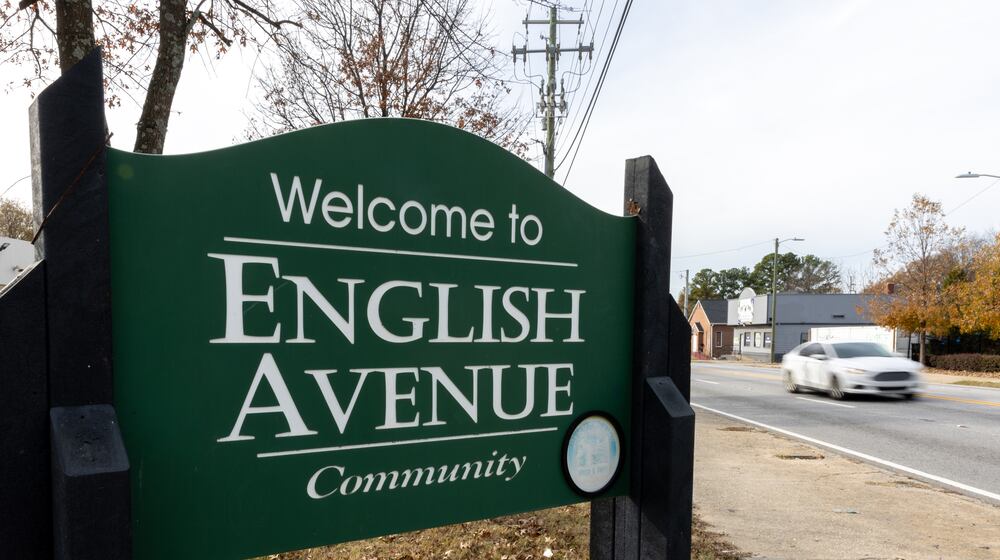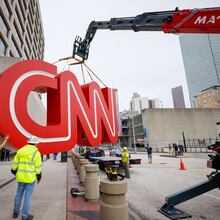One of the hardest things in life is learning how to overcome obstacles.
Hugh Morton, president of Jonesboro-based Peachtree Homes, has faced three tough ones — climbing to the top of the highest mountain peaks on each of the seven continents, trying to withstand the recent housing crisis as a homebuilder, and fighting cancer.
By the time Morton reached his last summit — Vinson Massif in Anarctica in 1999 — fewer than 70 people in the world had climbed “The Seven Summits.” Morton endured minus-40 degree temperatures, severe winds and the sight of three people, frozen in the snow, who died trying.
Most of his climbs were made while he was running a homebuilding company that thrived when metro Atlanta grew rapidly in the 1990s and first half of the 2000s. But the collapse of real estate market starting in 2007 turned black ink into red, forcing Morton to decide between bailing out or repaying mountains of debt with money he didn't have. While wrestling with that issue, he was diagnosed with lymphoma.
Morton, 65, talks about his approach to life’s challenges.
Q: Did you learn something early on that prepared you for the rough patches?
A: My dad did some homebuilding and owned some rental property. He didn't namby-pamby us. He believed in making me work. I would lay bricks when I was 8-years-old. I think that was useful because there's a lot of work involved and a lot of discomfort. It prepared me for a sport like mountaineering.
What I learned was the value of persistence. You don’t climb a mountain with one big leap. You do it one step at a time and one pull of the rope at a time. You keep doing it and don’t quit — although the conditions get difficult and you want to quit because it’s cold and you’d rather be back in your sleeping bag. You just don’t throw in the towel when things get tough.
My dad had a philosophy: Life is not what you can gain (monetarily), it’s how many experiences you can have. When I was 7, we were traveling through a sandstorm in New Mexico. I was very scared. My dad said, “just relax. This is an experience you’ll never forget.” I never did.
Q: Why did you start climbing mountains? What have you learned?
A: I got into hiking when I was in the Boy Scouts. When I was 39, I went on a trek to the base camp of Mt. Everest and I got captivated by it. I came back with the notion that I wanted some time to climb. Something in me kept pushing me toward the goal of climbing seven summits.
I did a lot of training first. I learned the value of heavy backpack climbing up Kennesaw Mountain and in the north Georgia mountains. I went to ice-climbing school at Mt. Baker in Washington state.
In 1992, after climbing to the top of Mt. Everest, I almost fell off that mountain — a 7,000 foot drop — on the way down. My goggles had frozen up and I missed a step. I slid out, but was able to arrest my slide by flipping my body and cramming my ax into the ice.
Coming down a mountain is riskier than going up. The way your legs are made, you’re much more stable going up. You’ve got clamp-ons, you’ve got an ice ax. If you slip, you’ll just fall on your belly. But when you’re coming down, your feet can come out from under you. Most of your accidents are on the way down because people are tired, you’re less alert and the weather starts deteriorating.
During the climbs, there were many times I got discouraged. But I’ve got tunnel vision. If I start something, I’ve got to finish it.
Credit: Bita Honarvar
Credit: Bita Honarvar
Q: How did you deal with your biggest financial challenge, the housing crisis?
A: I launched my own homebuilding business in 1991. I grew it slowly and progressively, building it up to 220 homes in 2006 for revenues of about $40 million.
You have to keep 200 lots coming to feed 200 houses a year. But when the housing market stopped like it did in 2007, the lots were still coming but there were no homebuyers. By 2009, there were 149,000 building lots sitting in the metro area.
We ended up in a debt squeeze. A lot of people threw up their hands in 2008. I lost my attorney, contractors, vendors. We were scrambling, trying to find another route. If one route on a mountain doesn’t work, you try to find another one.
We found an opportunity in Columbus with Fort Benning expanding. We went there to build in 2008 since we knew we wouldn’t survive here. A lot of our subcontractors were starving to death and went down with us.
We generated revenues there to try to do right by the bankers and lenders here. Everything we made down in Columbus went to pay somebody up here. I got rid of $20 million to $22 million in debt so far, but have more to go.
If I had not gone to Columbus, the doors would probably have closed. I didn’t want to file for bankruptcy. You just don’t quit.
Q: But your health is causing you to scale back, isn’t it?
A: Yes. I can't help but believe that stress from this industry helped lead to my lymphoma. The doctors just keep telling me to reduce stress. They think there's a correlation between stress and reducing your immune system.
I’ve gone through chemotherapy and I’m still doing some maintenance chemotherapy. I lost a lot of strength from it. I lost some weight. But mostly, chemotherapy beats you down mentally. Sometimes you feel you want to cry or scream at people. I’m usually more even than that.
You don’t get rid of lymphoma, but you beat it back. I’m symptom free right now, but it will come back. At some point, I know I’ll have to do more intense chemotherapy again.
Q: Of the three challenges, which one was the hardest for you to deal with?
A: The housing crisis. I went for months and months having to take something to sleep. Your mind wakes you up trying to figure out a solution. It's not been a fun time.
As for the lymphoma, I’m doing pretty well right now. It’s under control.
And as for mountain climbing, there’s obviously some physical and emotional stress. But none of it lasts as long as the housing crisis. We’ve been in it for more than five years. It just won’t end. That, in itself, can cause you to lose hope. It’s dragged down so many of my friends and associates.
Although I’m not a big builder now, I’m proud I’m still here. The key to life is persistence. You have to press on, whether you’re trying to run a marathon, get a college degree, write a book or climb a mountain. You hang in there until you get it done.
Morton’s remarks were edited for length and style.
WE GO BEYOND THE HEADLINES
Each week, Sunday Business Editor Henry Unger has a candid conversation with a local leader as part of our commitment to bring you insightful coverage of metro Atlanta’s business scene.
Hugh Morton Conquers The Seven Summits
Kilimanjaro, Africa (Tanzania) — 19,340 feet — 1988
McKinley, North America (Alaska) — 20,320 feet — 1989
Everest, Asia (Nepal) — 29,035 feet — 1992
Aconcagua, South America (Argentina) — 22,834 feet — 1995
Elbrus, Europe (Russia) — 18,510 feet — 1998
Kosciusko, Australia — 7,310 feet — 1998
Vinson Massif, Antarctica — 16,066 feet — 1999
Source: Georgia Magazine
About the Author






